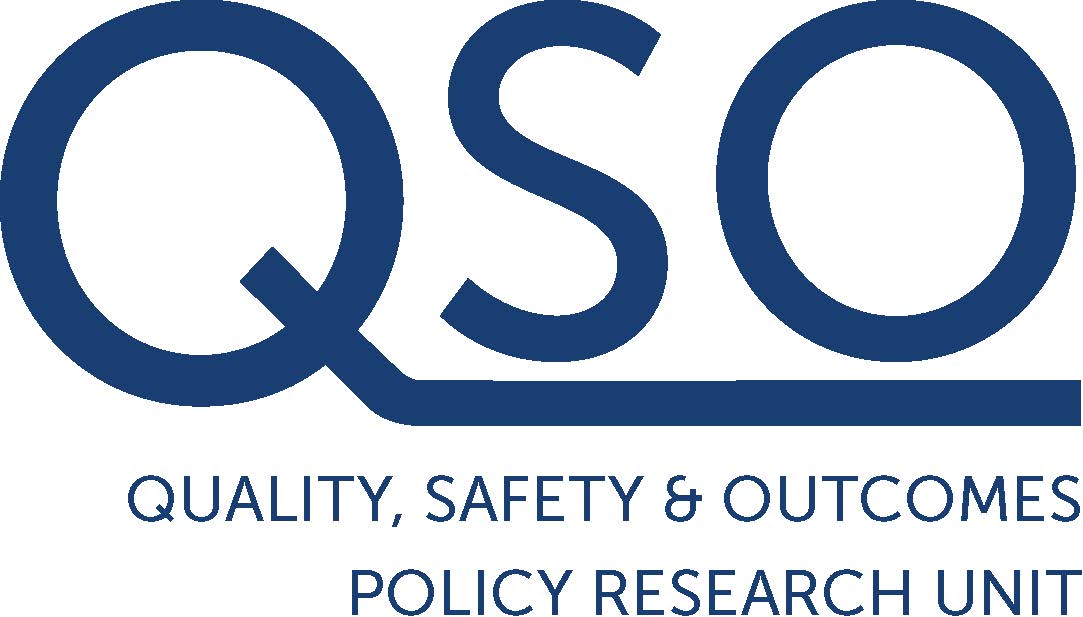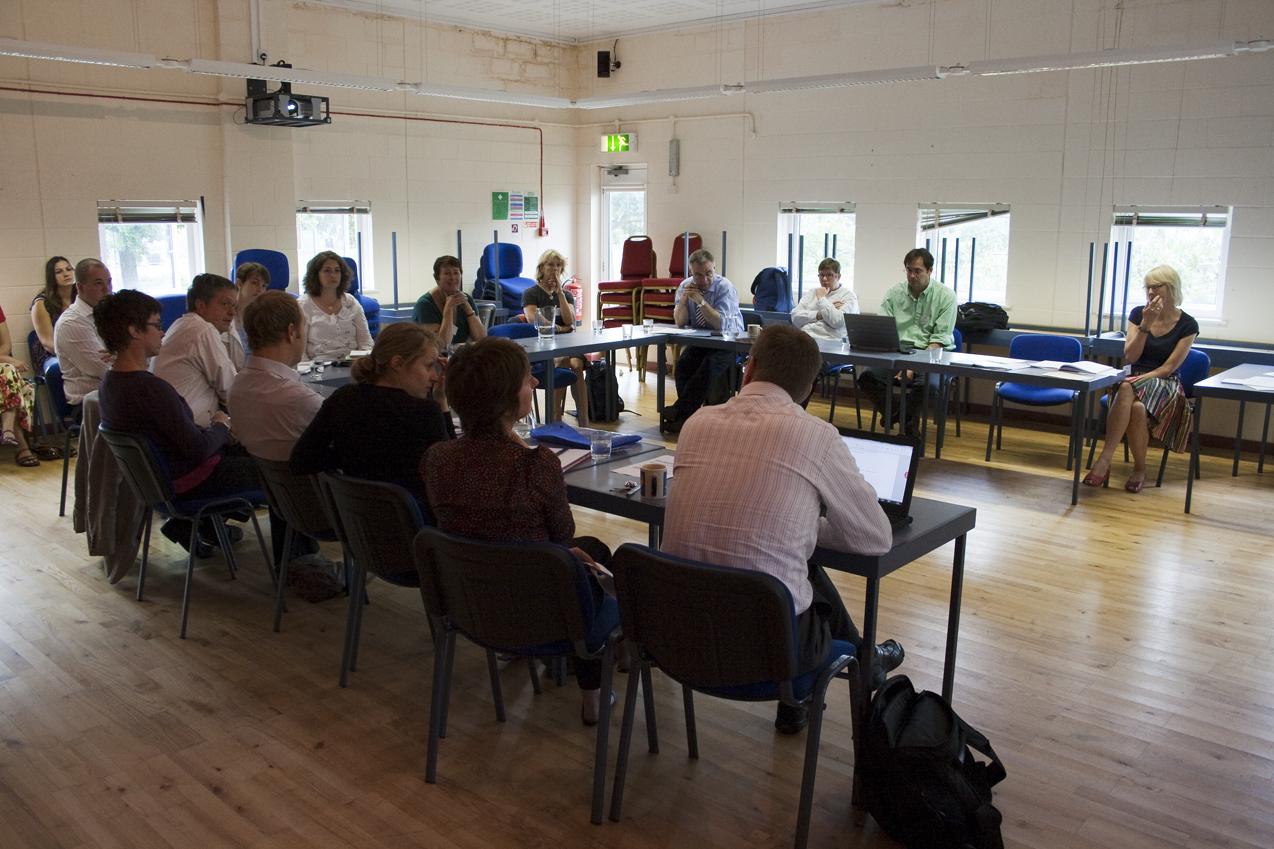November 2, 2023
By the QSO PPIE Team 
The Quality Safety and Outcomes Policy Research Unit (QSO PRU) is a collaboration between the Universities of Kent and Oxford, the London School of Hygiene and Tropical Medicine (LSHTM), the Picker Institute and Hull-York Medical School, funded by NIHR. The purpose of the QSO PRU is to produce robust, relevant and usable research to improve quality, safety and outcomes of the health and social care system.
With the support of the NIHR Centre for Engagement and Dissemination, researchers and lay research advisors in the QSO PRU have embarked on a pilot to use Wikipedia to extend the reach of their research.

Why are the team interested in using Wikipedia for research dissemination?
Wikipedia offers several advantages that make it an invaluable resource for the policy research unit’s pilot project. Firstly, one of the key benefits is increased accessibility. Wikipedia provides free access to a vast array of information, making it available to a wide audience through the use of simple search terms. This accessibility extends to both researchers, research stakeholders, patients and the general public, ensuring that knowledge reaches a wider demographic and breaks down barriers to information. The extended reach of Wikipedia allows research outcomes to reach patients and the public who may have a genuine interest in the findings, and therefore fosters a greater understanding of research in a manner that is both accessible and user-friendly.
Sarah Birch, Public Involvement and Engagement Manager for QSO PRU and University of Kent adds ‘when I was approached to work on this pilot, it seemed like a great way for our researchers to broaden their research engagement. By offering an alternative route for research dissemination, we could circumvent the challenges of finding, accessing or understanding scientific publications, faced by people who are most affected by certain research outcomes.
How did the team do this?
The team consisted of QSO PRU researchers and lay research advisors, supported by the expertise of a ‘NIHR Wikipedian’ from the NIHR Centre for Engagement and Dissemination. The first step was for the group to identify a relevant article which would benefit from incorporating the PRU’s research findings. The team decided to work on the “Health care quality,” article on Wikipedia.
The next step was for the researchers to create initial draft content which would enhance the article and provide references to the PRU’s research. The Lay research advisors and researchers then jointly discussed and created the additional content for the Wikipedia articles. The lay research advisors played a crucial role in ensuring that the newly added content was accessible to a wide range of readers. This meant complex scientific research language was converted into widely accessible and understandable information. This approach not only improved the accessibility of the article but also made it more engaging for a diverse audience.
How was the QSO PRU’s research incorporated into the Health care Quality Wikipedia Article?
By integrating organisational and patient perspectives, as well as highlighting specific UK-focused research and initiatives, the article became a more comprehensive resource, offering readers a deeper understanding of health care quality and its multifaceted aspects. Read the updated Wikipedia Health Care Quality article here!
Several key edits were implemented to enrich the content and provide a more comprehensive perspective.
Firstly, the article discusses methods to assess and improve health care quality. By considering organisational perspectives, research from the University of Kent was included in a new ‘Staffing’ section, which provides valuable insights into the impact of staffing on healthcare quality.
The article was enriched with patient perspectives, particularly regarding the need for a mixed-methods approach for survey inclusion. Insights gleaned from University of Kent research shed light on the importance, but challenges of including patient perspectives in measuring and assessing care quality. This addition added a valuable dimension to the article, considering the significance of patient-centered care.
Further into the Health Care Quality Wikipedia article, there is a section regarding organisations involved in Health Care Quality. Additional information in the United Kingdom section was added to highlight the Health and Care Act in 2022 and subsequent establishment of the Integrated Care Systems. Here, the team were able to broaden the information to include the specific focus of the QSO PRU and its assessment of how Integrated Care Systems can promote quality of services across both Health and Social Care. Furthermore, this section provided a link to the QSO website, offering readers the opportunity to delve deeper into the research and resources provided by the PRU.
These improvements were instrumental in enriching the article’s content, incorporating various perspectives and research findings. By integrating organisational and patient perspectives, as well as highlighting specific UK-focused research and initiatives, the article became a more comprehensive resource, offering readers a deeper understanding of health care quality and its multifaceted aspects.
What about the reliability and accuracy of using Wikipedia?
The use of Wikipedia is considered to be progressive in dissemination, with the capability of boosting research visibility. The ability for articles to be continually edited and updated is seen as a positive motion, keeping information up-to-date and with stronger build-upon evidence, and malicious edits quickly removed by the Wikipedia team.
There are policies in place to ensure the quality and reliability of content on Wikipedia. When writing or editing Wikipedia articles, a neutral, factual tone is required to avoid personal judgements and opinions. In addition, any text must be verified through the use of citations using reliable sources (such as peer-reviewed journals, academic text books).
What are the next steps for the QSO PRU team?
Following the successful completion of the pilot project, the QSO PRU team is now looking ahead to identify another article for edit and review, building on the experience gained from the pilot.
In addition to editing existing articles, the QSO PRU team plans to generate new Wikipedia articles based on completed and published findings. This proactive approach will allow the team to expand the scope of their contributions and address specific topics or areas of interest that may be currently underrepresented on Wikipedia.
An important focus for QSO PRU is also in the training and development of the lay research advisors. Following Wikipedia editing training with the ‘NIHR Wikipedian’ during this pilot, the lay research advisors now have essential Wikipedia skills to allow them to actively participate in future work, making significant contributions to Wikipedia’s knowledge base and research dissemination efforts.
By setting these ambitious goals and investing in the training and development of their team, the QSO PRU is demonstrating a commitment to long-term engagement with Wikipedia as a platform for research dissemination. These next steps reflect a continued dedication to sharing research findings widely and promoting accessible and inclusive knowledge exchange in the field of quality, safety and outcomes of the Health and Social Care system.
